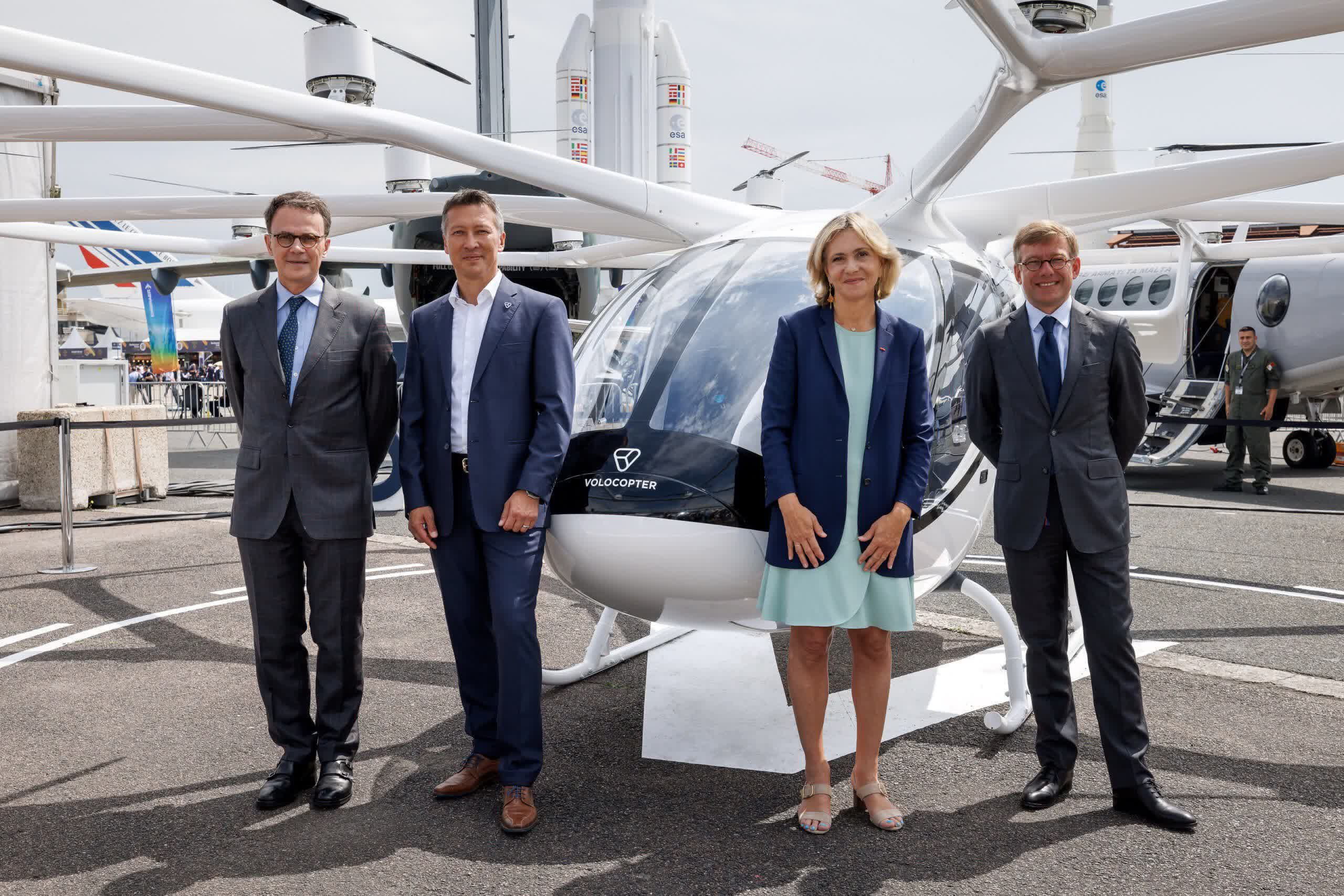Forward-looking: Numerous companies have spent several years trying to fulfill the long-dreamed promise of flying cars. Significant challenges remain, but developments in the sector sped up significantly throughout 2023. Multiple proposals have outlined flying taxi services that could appear in major cities over the next two years.
Recent milestones could put a nascent industry on track to open flying taxi services in 2024 and 2025. Questions remain regarding cost and safety, but regulators are warming up to the technology, which could save passengers significant commute time.
Volocopter might become one of the first flying taxi companies to open a service with broad exposure if its planned Paris service is ready for the 2024 Summer Olympics. The company is designing multiple routes between Versailles and airports around Paris.

Since Volocopter gained approval for the plan, it has successfully flown electric vertical takeoff and landing (eVTOL) vehicles in Florida, New York City, and Osaka. The tests prove flying taxis can operate in major metropolitan areas and international airports. Another flying taxi company, Joby Aviation, recently completed air traffic control simulations with NASA and started plans for specialized landing pads throughout Japan.
Joby plans to start air taxi services in NYC by 2025, and Archer Aviation is working with United Airlines to provide flying taxis in Chicago around the same time. However, China may be currently in the lead regarding flying taxis. The government recently approved for EHang Holdings to offer trial tours in Xinjiang and Shenzhen. Meanwhile, in the US, the FAA has drafted proposals for short eVTOL flights by 2028.
Despite the progress, significant obstacles to broad adoption remain. The most obvious issue is likely cost. Flying over traffic with new technology is inherently expensive, but Joby and UA hope flying taxis can eventually become as cheap as an Uber ride. Another problem is safety, as the extreme weight of eVTOL batteries complicates flight.
Furthermore, the VTOL design that companies have chosen has a troubled history. Since the US military began deploying V-22 Osprey VTOL aircraft in 2007, 10 have failed, killing 24 people. The military recently grounded its $32 billion Osprey fleet after a fatal crash off the coast of Japan.
Such issues caused competitors like Kitty Hawk and Uber to back out of the market. Time will tell if Joby, EHang, Volocopter, and Archer can stay the course and eventually offer affordable air taxi rides.
https://www.techspot.com/news/101339-flying-taxi-services-could-begin-appearing-early-2024.html